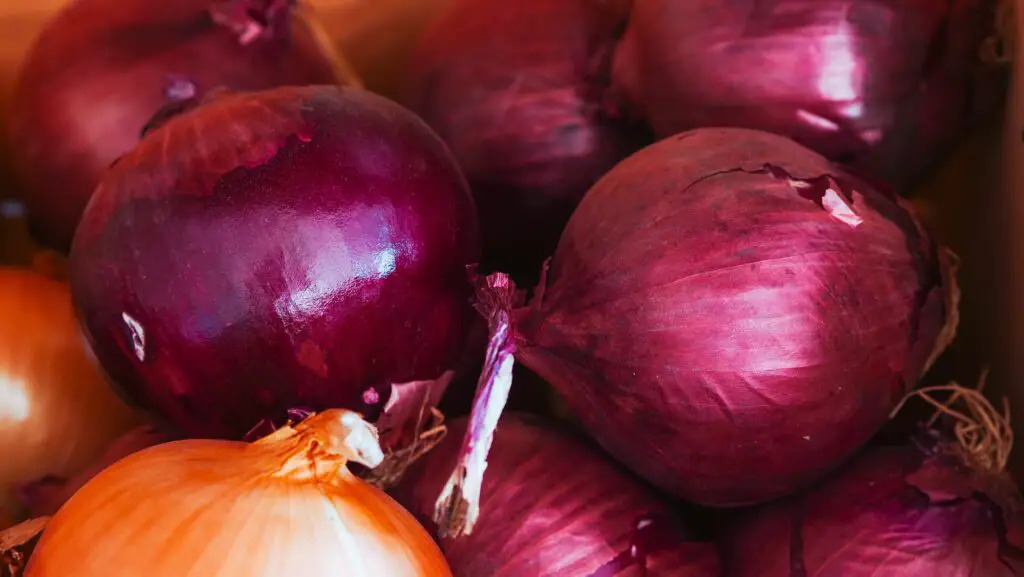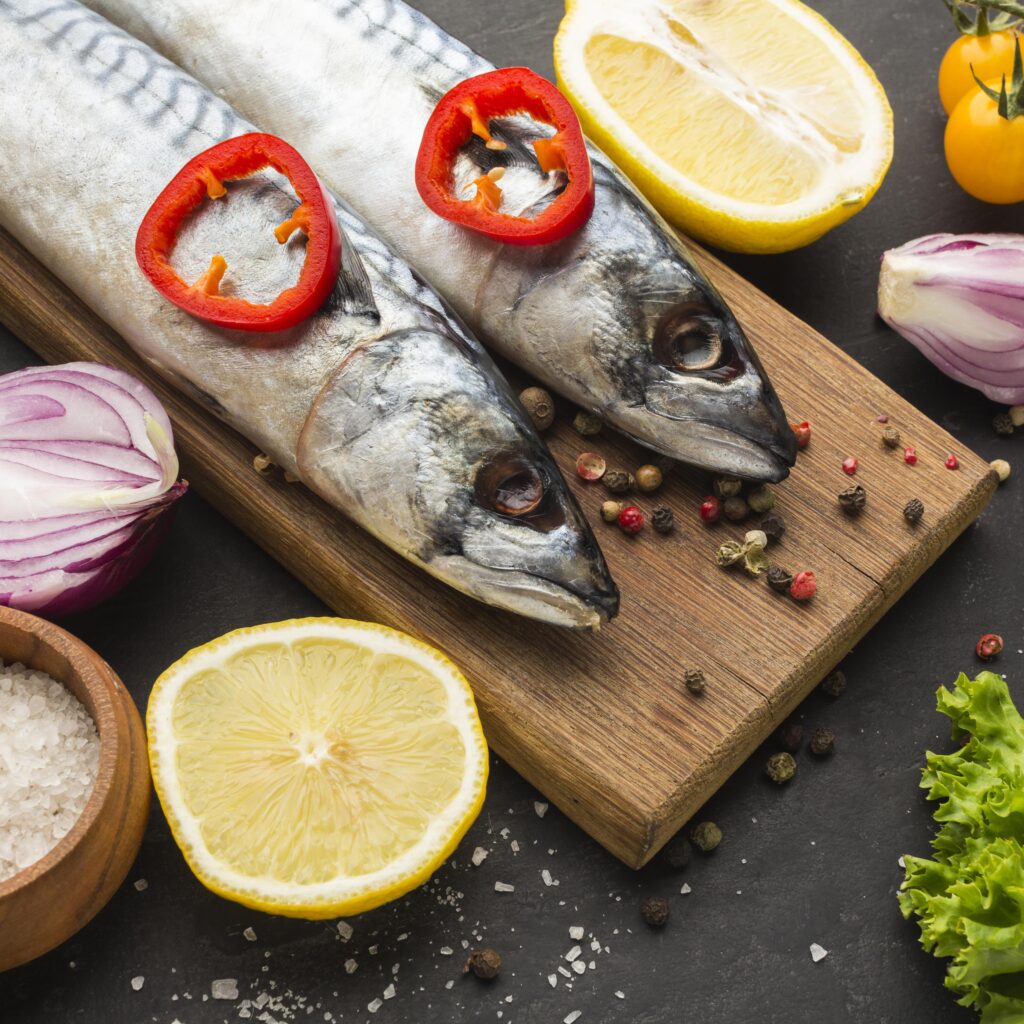Introduction
Power food which is not only easy to acquire but also cheap.
Impossible you’ve said?
Possible 🤷♂️
Introducing, a powerful addition to your diet which offers numerous health benefits and is packed with antioxidants.
A simple solution to help fight free radicals and reduce the risk of chronic diseases.
Concerned about heart health? What if one ingredient would lower it significantly whilst offering other benefits like lowering inflammation, and strengthening the immune system?
In other words – reserve a 10-minute ride into the better-you scenario. 😉

Today, I will tell you about the exceptional health benefits of one of the most popular vegetables in many countries, and I’m referring to onions.
According to statistical data, during the season, as many as 66% of the world’s population reaches for this vegetable at least once a week. That’s why I believe it’s even more important to know what goodness lies within it.
But beware! 👏
I would like to encourage you not only to choose white or yellow onions but above all, to opt for red onions, and I will explain why in a moment.
Medicinal value of onions
I will start by briefly explaining which components present in onions contribute to their health benefits.
Similar to the popular garlic, onions contain sulfur compounds such as allicin, isoalliin, and diallyl disulfide, but in much smaller quantities compared to garlic. However, this does not mean that onions are less valuable.
What sets onions apart is their high content of antioxidants in the form of flavonols, with quercetin being the most important representative. It is largely responsible for the beneficial effects of onions on health.
Additionally, I would like to mention that onions are one of the richest dietary sources of this component.

Red Barron, I mean… Onion
I would like to draw your attention to a particular advantage of red onions over other varieties. By delving into scientific literature, we can learn that red onions can contain up to twice as much quercetin as yellow onions. It fares even better compared to white onions, boasting over six times the amount of this compound.
Furthermore, red onions also contain anthocyanins, which give them their characteristic color and possess strong antioxidant properties. According to this information, it is advisable to opt for red onions most frequently, although yellow onions are also valuable. The least benefits can be gained from white onions.
Now that you are aware of the components that make onions a valuable vegetable let’s proceed to discuss the health benefits that can be obtained when regularly incorporating them into our diet.
It’s worth knowing that similar to garlic, onions have anticoagulant properties, meaning they slow down the blood clotting process. Therefore, scientists consider onions to be a valuable dietary component for preventing clot formation and the development of thrombosis. This implies that onions help maintain proper cardiovascular function.
However, it’s important to note that onions exhibit such health properties mainly when consumed raw. Researchers have observed that subjecting onions to heat can diminish their aforementioned activity. Therefore, if you seek their antiplatelet or anticoagulant effects, it is best to consume them raw.

Cardioviscular health
In the context of cardiovascular health, it is worth mentioning that previous experiments conducted on animals have confirmed that onions have a hypotensive effect, meaning they lower blood pressure. Experts believe that this activity stems from the compounds present in onions stimulating the production of nitric oxide, which dilates arteries and consequently reduces blood pressure.
However, similar to the anticoagulant properties mentioned earlier, subjecting onions to high temperatures, such as boiling, frying, or baking, can significantly diminish the effectiveness of this activity.
Staying on the topic of cardiovascular health, I would like to emphasize that regular consumption of onions has a positive impact on blood lipid profile. Scientists analyzed the results of ten studies involving humans and unequivocally demonstrated that onions restore the balance between HDL and LDL cholesterol levels. This effect is crucial because if blood tests reveal elevated LDL levels along with reduced HDL concentrations, it indicates a higher risk of developing atherosclerosis. Based on the information I provided, it can be inferred that onions exhibit certain anti-atherosclerotic effects.
Everything I have just mentioned—onions’ anticoagulant, blood pressure-lowering, and anti-atherosclerotic properties—translates into specific clinical effects. For example, in 2009, experts from Italy published the results of a study that showed individuals who consumed at least one portion of onions per week had a 22% lower risk of experiencing an acute myocardial infarction (heart attack).
Interestingly, as researchers demonstrated within the discussed scope, onions proved to be more effective than garlic.

Neuro-Degenerative Shield
While preparing today’s article, I came across a fascinating study from 2021 that involved adult and older participants aged between 60 and 80 years. In this experiment, the subjects consumed onions daily for six months. After this period, the researchers assessed the impact on their cognitive function.
It turned out that permanently incorporating onions into their diet led to an improvement in cognitive function and, consequently, slowed down the progression of dementia. The researchers attribute this effect to the presence of quercetin, which, among other things, enhances blood flow in the brain, promoting neurogenesis or the generation of new nerve cells.
Furthermore, due to their antioxidant properties, the compounds present in onions protect neurons from damage caused by neurotoxins, effectively inhibiting neurodegenerative changes.
The obtained results indicate that onions can be a beneficial addition when it comes to preserving our brain’s functionality. Importantly, this effect was observed in older individuals, suggesting that it is never too late to make dietary changes for potential benefits.

Strengthening Bones – Naturally
I understand that while reading this material on the health properties of onions, some individuals may not have expected to hear that onions can improve bone health.
Strong bones are typically associated with nutrients like vitamin D, vitamin K, calcium, and magnesium. However, it turns out that onions, despite not containing these elements, also contribute to strengthening our bones.
For example, a study involving peri- and postmenopausal women aged 50+ demonstrated that individuals who consumed onions daily had, on average, a 5% higher overall bone density compared to those who consumed onions only once a month or less frequently.
A similar effect was observed in another experiment where women were given 100 milliliters of onion juice daily for eight weeks. At the end of the study, it was found that onions partially inhibited the decline in bone mineral density.
This is due to the presence of bioactive compounds in onions that suppress the formation of osteoclasts, which are bone-resorbing cells that contribute to bone breakdown. Additionally, onions stimulate the production of osteoblasts, which are bone-forming cells that help build our bones.

Anti-Cancer Angel
Speaking of the health properties of onions, it is impossible not to mention its remarkable anti-cancer activity. As scientific literature suggests, incorporating onions into our diet can protect us from various types of cancer. It is particularly effective in relation to gastrointestinal cancers.
In one of the renowned scientific journals, a study was published demonstrating that individuals who consume large amounts of onions have a 46% lower risk of developing stomach cancer compared to those who rarely consume this vegetable. Another publication reveals that including onions in daily diet is also associated with a reduced risk of colorectal cancer, oral and pharyngeal cancer, as well as esophageal cancer.
Furthermore, it is worth emphasizing that onions exhibit more potent anti-cancer effects than garlic. Additionally, in the context of cancer prevention, onions can be particularly beneficial for women. A study from 2016 suggests that regular onion consumption is associated with a 37% lower risk of breast cancer. It is important to note that this high efficacy refers to raw onions rather than those subjected to heat treatment.
Delving into the scientific literature, we can also find information that women who frequently consume onions have a lower incidence of endometrial cancer and ovarian cancer. Onions can also provide benefits to individuals with elevated blood sugar levels, such as those with diabetes. In a small study, researchers observed that regular consumption of 100 grams of red onion (approximately one onion) significantly reduces blood glucose levels. Interestingly, some individuals experience such satisfactory results that they are able to reduce the dosage of their anti-diabetic medications.
This only highlights the tremendous health potential that lies within natural products and emphasizes the importance of harnessing their benefits.

Unknown Hypoglecymic effect
The hypoglycemic effect of onions, i.e., lowering blood sugar levels, is likely due to the compounds present in them that improve the functioning of pancreatic beta cells responsible for insulin release. Insulin, in turn, reduces glucose levels in the blood by transporting it into the cells of our body.
Furthermore, researchers believe that onions can also modify the activity of certain enzymes involved in glucose metabolism in the human body.
I also came across a study that confirmed the contribution of onions to mitigating insulin resistance, which is another factor through which this vegetable improves our carbohydrate metabolism.
It is also worth noting that the compounds found in onions exhibit hepatoprotective effects, meaning they protect the liver from damage. This includes damage caused by harmful effects of drugs and heavy metals.
Moreover, animal experiments have shown that the components present in onions improve the functioning of a fatty liver. This refers to their beneficial reduction of liver enzymes and even their potential to decrease steatosis (fatty liver) and inflammation in this organ.
Another advantage of consuming onions is their prebiotic properties. In simpler terms, onions contain beneficial compounds called fructooligosaccharides, which nourish the bacteria inhabiting our intestines. This means that consuming onions promotes the growth of microorganisms that are beneficial for our health. This effect is particularly important, for example, after completing antibiotic therapy, when the restoration of our gut microbiota is crucial.
As mentioned earlier, onions contain polyphenols, including quercetin, which possess strong antioxidant properties. Numerous studies have demonstrated that onions have the ability to neutralize free radicals and prevent oxidative stress.
Overall, onions offer a wide range of health benefits, including their impact on blood sugar levels, liver protection, prebiotic effects, and antioxidant properties.

Fights over-active white cells?
Moreover, scientists have found that onions also exhibit anti-inflammatory properties, which contribute to reducing inflammation. In one of the recent studies from 2021, the authors explicitly stated that onions provide therapeutic value in the treatment of various diseases associated with oxidative stress and inflammation.
As I mentioned in one of my recent videos, even 60% of all deaths worldwide are caused by diseases that have chronic inflammation as their underlying factor. This further emphasizes the valuable nature of onions as a vegetable for our health.

BONUS – Direct Health Recipe
I will give you a suggestion for a specific dish using onions. It may not be groundbreaking because I believe many of our readers have already practiced something similar.
I’m referring to herring salad with onion, apple, pickled cucumber, apple cider vinegar, and olive oil.
In my opinion, it’s worth combining onions with herring because consuming this type of fish, just like onions, is associated with slowing down the development of dementia and reducing the risk of its occurrence.
Similarly, herring also strengthens our cardiovascular system. Scientists have confirmed that incorporating fish into our diet is associated with a lower risk of coronary heart disease, heart attacks, and strokes.
Furthermore, the omega-3 fatty acids present in fish have anti-inflammatory properties, similar to the compounds found in onions.
There is a reason why I included apple cider vinegar in the recipe for a healthy salad. We value it primarily because it is very effective in lowering blood sugar levels and alleviating insulin resistance, which is also a benefit that onions can boast.
Additionally, apple cider vinegar has the ability to significantly reduce triglyceride levels, making the salad even more beneficial for our circulatory system.
It is also worth enriching the mentioned dish with extra virgin olive oil because, like onions, it has a positive impact on the functioning of the cardiovascular system.
Similar to onions, olive oil helps restore the balance between HDL and LDL cholesterol levels and additionally prevents the oxidation of cholesterol, which is a harmful modification occurring in blood vessels. This is why it also exhibits anti-atherosclerotic effects.
As researchers have demonstrated, regular consumption of olive oil reduces the risk of coronary heart disease by 27% and strokes by 26%.
Furthermore, olive oil protects us against certain types of cancer, just like onions do for gastrointestinal cancers and breast cancer. It reduces the risk of liver steatosis and improves communication between nerve cells, to some extent preventing neurodegenerative diseases.
Important Safety Measures
Now a few words about the safety of consuming onions.
In general, as I have demonstrated, onions are a health-promoting food. However, some individuals should exercise caution when consuming them.
First and foremost, it is important to be aware that onions can be relatively difficult to digest. Therefore, individuals who require a light diet should limit their onion consumption.
It is also worth noting that onions contain fructooligosaccharides, which can cause adverse effects in individuals with gastrointestinal issues, including those suffering from irritable bowel syndrome.
Furthermore, individuals with gastroesophageal reflux disease (GERD) should be aware that onions can exacerbate their condition, including causing heartburn.
People taking anticoagulant medications should approach high onion consumption with caution as well, considering what I mentioned earlier about onions slowing down blood clotting.
Additionally, it is not recommended to feed onions to dogs as they can be harmful to them. Onions can cause a condition called hemolytic anemia in dogs, leading to the destruction of red blood cells.

Summary
Onions, with their distinct flavor and aroma, are not just a kitchen staple but also a powerhouse of health benefits.
These humble bulbs contain compounds that can positively impact our well-being. One notable advantage is their potential to regulate blood sugar levels, making them beneficial for individuals with diabetes.
Additionally, onions have been found to possess anti-inflammatory properties, aiding in the reduction of chronic inflammation, a common underlying factor in various diseases.
However, it’s important to be mindful of certain considerations, such as their digestibility for individuals with sensitive stomachs and potential interactions with certain medications.
Despite these precautions, incorporating onions into our diets can be a simple and delicious way to support our overall health.



Comments are closed.